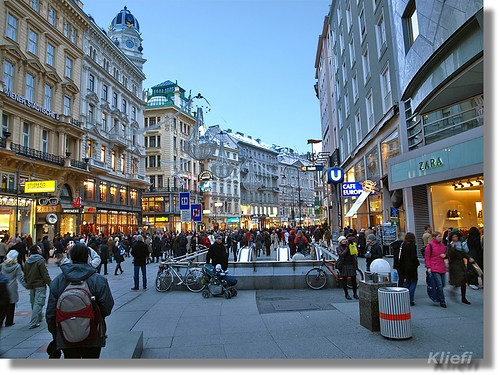US cities fare poorly in international “quality of life” rankings

Posted April 30, 2009 at 1:47PM
Six of the top ten cities in Mercer Consulting's annual rankings of over 200 international locations according to a composite "quality of living" index are either German or Swiss. Here are the top ten:
1 Vienna
2 Zurich
3 Geneva
4 Vancouver
5 Auckland
6 Dusseldorf
7 Munich
8 Frankfurt
9 Bern
10 Sydney
The highest-ranking US city is Honolulu at #29, trailing Vancouver (4), Toronto (15), Ottawa (16) and Montreal (22) in Canada.  Other US cities in the top fifty include San Francisco (30), Boston (35), Portland (42), Washington (tied for 44), Chicago (tied for 44), and New York (49).
Other US cities in the top fifty include San Francisco (30), Boston (35), Portland (42), Washington (tied for 44), Chicago (tied for 44), and New York (49).
According to the company's website, Mercer "is the global leader for trusted HR and related financial advice, products and services. In our work with clients, we make a positive impact on the world every day. We do this by enhancing the financial and retirement security, health, productivity and employment relationships of the global workforce. Mercer has more than 18,000 employees serving clients in over 180 cities and 40 countries and territories worldwide."
More on what the rankings purport to measure:
"Living conditions are analysed according to 39 factors, grouped in 10 categories:
- Political and social environment (political stability, crime, law enforcement, etc)
- Economic environment (currency exchange regulations, banking services, etc)
- Socio-cultural environment (censorship, limitations on personal freedom, etc)
- Health and sanitation (medical supplies and services, infectious diseases, sewage, waste disposal, air pollution, etc)
- Schools and education (standard and availability of international schools, etc)
- Public services and transportation (electricity, water, public transport, traffic congestion, etc)
- Recreation (restaurants, theatres, cinemas, sports and leisure, etc)
- Consumer goods (availability of food/daily consumption items, cars, etc)
- Housing (housing, household appliances, furniture, maintenance services, etc)
- Natural environment (climate, record of natural disasters)"
On some level, rankings like this are inherently silly and arbitrary. But they are fun, which is why as a society we are obsessed with ratings, rankings, and competitions.  And it's worth noting that the top contenders are all relatively compact and walkable, with excellent multimodal transportation systems. Of the top ten, I'm most familiar with Geneva, which I have visited quite a few times while shamelessly tagging along on my wife's business trips. It's wonderful, though seriously expensive (affordability is conspicuously missing from Mercer's criteria, apparently aimed at a corporate clientele).
And it's worth noting that the top contenders are all relatively compact and walkable, with excellent multimodal transportation systems. Of the top ten, I'm most familiar with Geneva, which I have visited quite a few times while shamelessly tagging along on my wife's business trips. It's wonderful, though seriously expensive (affordability is conspicuously missing from Mercer's criteria, apparently aimed at a corporate clientele).
The compact, walkable, and transit-friendly description fits the Canadian and American cities as well, at least compared to most American cities (with the possible exception of Honolulu, with which I am unfamiliar).
The top 50 cities on Mercer's list, with some discussion, may be found here.
